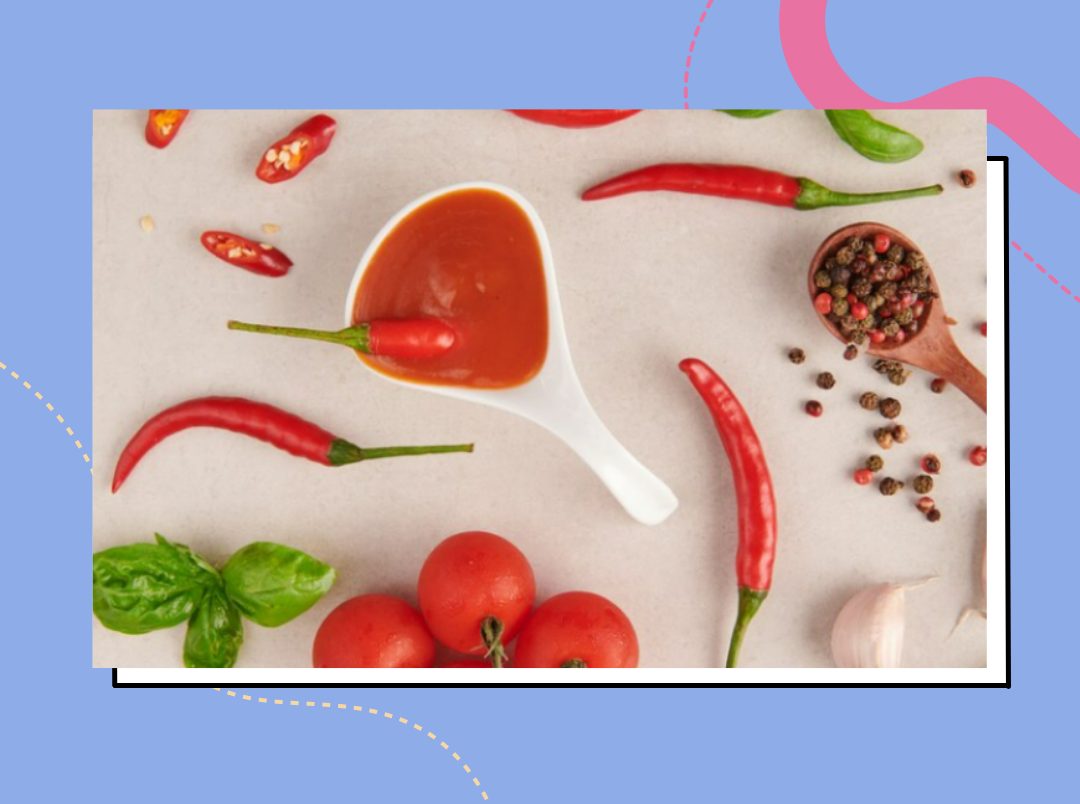
Spicy foods have explosive flavours and filled with tangy and savoury ingredients that will give you a much-needed break from your simple meals. In fact, you may seek more of these foods during pregnancy as they boost your mood and appetite. Although the exact reason for spicy food cravings remains unknown, nutritional deficiencies and hormonal changes might be the underlying factors. But the question is, can you eat spicy foods during pregnancy? Well, we bring you all the details about consuming spices during pregnancy.
Is It Safe To Eat Spicy Food During Pregnancy?
Yes, spicy foods are safe to consume during pregnancy. There are no known effects of spicy foods on the health and development of the foetus in any trimester. In fact, a study conducted by the Baylor College Of Medicine stated that women who have always consumed spicy food may not even have any issues. However, if you occasionally eat spicy food or want to try it for the first time, you may consume in minimal quantities.
What Are The Side Effects Of Eating Spicy Food During Pregnancy
While spicy foods do not affect the mum or the foetus inherently, they may still increase the risk of the following common conditions in the mum.
- Heartburn: Most pregnant women suffer from uncomfortable heartburn or reflux during the later stages of pregnancy. Having spicy foods can aggravate stomach acids, thus increasing the severity of heartburn.
- Indigestion: This is a common discomfort that many pregnant women experience in their final stages of pregnancy. Spices may worsen indigestion in women experiencing the condition already.
- Morning sickness: It is a condition characterised by nausea, food aversions, and vomiting. Consuming spicy foods can make the symptoms of morning sickness worse.
The aggravation of these issues due to spicy foods depends on various factors. This includes the intensity of the spices used, tolerance to spicy foods, and accompanying foods or items that may worsen these conditions.
5 Tips To Safely Consume Spicy Foods
If spicy foods do not cause any concerns during pregnancy, you may continue to consume them the way you usually do. But if it increases the severity of digestive problems, you may observe the following precautionary methods while consuming spicy foods during this time.
- Avoid consuming spicy foods in restaurants. Instead, prepare the dishes at home so that you can monitor the amount of spice according to your taste.
- If possible, purchase whole spices and then powder them yourselves. The pre-packed powdered spices may be adulterated.
- Make sure to check the ingredients list and expiry dates on the packaging of spices before purchasing.
- Reduce or avoid spicy food if they cause you a lot of discomforts. You may even try limiting a particular spice in your diet.
- Always purchase spices that are approved by food regulatory authorities.
Are There Any Benefits Of Eating Spicy Food When Pregnant?
A touch of spice to the food enhances its taste and stimulates your palette, it also provides the following benefits.
- Improves your overall health: Eating foods with spices can help improve various aspects of your overall health during pregnancy. A study published by Cambridge University, UK notes that women who ate spicy foods five or more times a week had low levels of bad cholesterol in their blood. The study also emphasied how pungent spices can increase the good cholesterol levels in the blood.
- Stimulates the baby’s taste buds: When a pregnant woman consumes food with a specific flavour, it seeps into the amniotic fluid and introduces the unborn baby to new tastes, thereby helping stimulate the foetus’ taste buds.
Ways To Include Spice In Your Diet During Pregnancy
You can add the following spice products to your food recipes. Always start with minimal amounts and then add them in moderation.
- Black pepper: Black pepper has rich antioxidant properties and can have a soothing effect when consumed during pregnancy.
- Curry sauce: This Indian spice mix has garlic, onion, chilli, and other common spices. It acts as a great taste enhancer and you may add it to your curry to level up the spice.
- Wasabi peas: These are roasted peas coated with wasabi, which is a popular pungent condiment. It adds a good amount of spice to the peas and you can have this moderately as a healthy snack.
- Piri-Piri sauce: This sauce is made with African bird’s-eye chilli, garlic, onion, and tomatoes. They are high in spice and should be consumed in scanty amounts.
Spices are a part of the regular diet in several cultures worldwide. If you have always consumed spicy food, there is no reason to stop eating it when you are pregnant. However, if you notice an increase in digestive problems, such as heartburn due to spicy food, you should cut down or avoid it during pregnancy, best yet, consult your doctor to ensure you have a safe and healthy pregnancy.